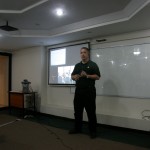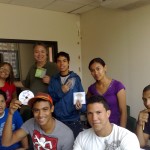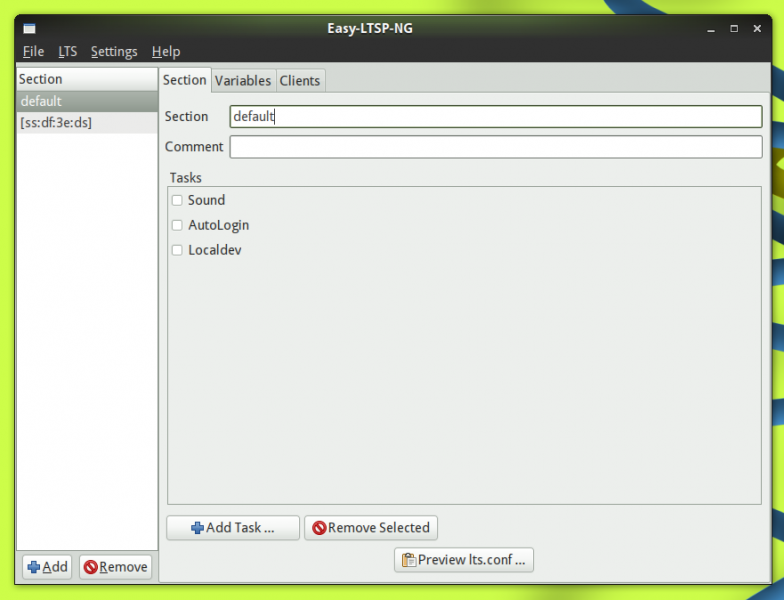As we get more and more PHP-, Perl- and other applications like openSIS, Koha, Moodle, … in the Education repository, the question turns up, how to package those applications “the right way”.
A normal user, who wants to use one of these apps, might just choose to install the package and has the problem how to proceed afterwards. openSUSE sadly has no “post config” scripts like Debian based distributions – even the SuSEconfig scripts are deprecated. So all a packager can currently do is:
- write a README.SuSE (which is already the case for many packages) and place it in /usr/share/doc/packages/<packagename>/README.SuSE explaning how to proceed
- sugget what the user always wants to do and do it via %post-script after the installation of the RPM
- combine 1&2 and point the user to a script in the README.SuSE 🙂
- write a YaST module which can be started during installation or afterwards
- any other option I missed (please inform me!)
For the Education project, I’m currently thinking about two ways to make the life of the admins easier.
First: think about “wrapper packages” around the normal packages. I’ll take moodle as example. The normal moodle package installs the php-scripts, an apache configuration and some other config stuff – but will not setup the complete moodle instance. So the user has to install the mysql database himself. An additional wrapper package can do this for him. This package comes with a SQL-Dump of the current moodle version (therefore requires the exact moodle version), and uses a stored mysql-root password to create a new database and insert the database-dump. If needed (for example: the user enables the “user LDAP-Auth wherever possible” checkbox in a (to be written) yast-edu module), additional tasks can be triggered by the wrapper package.
We can also think about calling a “generic” YaST module after installation of such a “needs postconfiguring” package. If we define a place (say: /var/adm/YaST/postinstall/) where packages can place a file containing some important questions to configure the application, and someone writes a YaST module which can be started, this would perhaps be “very cool”. If the user has entered his values, the YaST module can start one or more scripts (coming with the package) and feeds it with the entered values. The biggest questions for this solution:
- When should this YaST module be started? IMO it could be enough to let the user start it manually and select the package he wants to configure. => No adaptions of the current workflows is needed. But perhaps there are other options (like calling it via “SuSEconfig”)?
- Who can write such a module?
- Who defines the config syntax?
Think about a file like this:
<package name=”moodle”>
<questionpack type=”string” action=”/usr/share/moodle/scripts/install_database”>
<question arg=”1″ type=”string”>What’s the database password?</question>
<question arg=”2″ type=”string”>What should be the name of the new database (suggest: moodle)?</question>
<question arg=”3″ type=”string”>What’s the username of the new database user?</question>
<question arg=”4″ type=”string”>What’s the password of the new database user?</question>
</questionpack>
<questionpack action=”/use/share/moodle/scripts/configure_auth_backend” type=”selectbox”>
<question arg=”1″>What auth-backend should be used?</question>
<answer value=”1″>ldap</answer>
<answer value=”2″>mail</answer>
<answer value=”3″>passwd</answer>
</questionpack>
</package>
I think, there’s room for many enhancements in this area – what do you think ?
Should/Could we produce something like a “Windows-Installer” for openSUSE? Or is it enough to provide special “wrapper packages”? Or is “what was hard to write, should be hard to install” still a valid answer?


